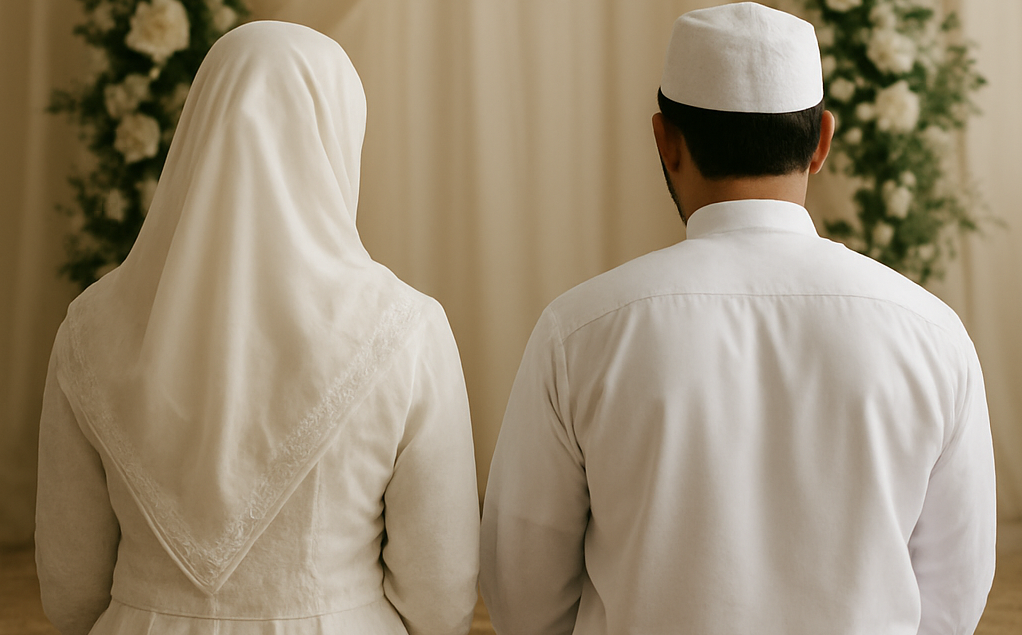By: Umar Khan (Candidate Attorney)
Ziyaad E Patel Attorneys
For many years, Muslim marriages in South Africa were not recognised under civil law. This left couples, and women in particular, without important protections when it came to divorce, inheritance, and property rights. That legal gap has now narrowed significantly. Recent court rulings, legislative developments, and administrative steps mean Muslim couples today have far greater recognition and protection than before.
This article explains what these changes mean for you as a Muslim couple, how your marriage is treated under South African law, and what practical steps you can take to safeguard your rights.
What Has Changed?
The turning point came in President of the RSA and Others v Women’s Legal Centre Trust and Others [2020] ZASCA 177, where the Supreme Court of Appeal ruled that the State’s failure to recognise Muslim marriages was unconstitutional. The Court found that excluding Muslim marriages from the Marriage Act and Divorce Act violated key constitutional rights, including:
- Equality (Section 9)
- Human dignity (Section 10)
- Children’s rights (Section 28)
- Access to courts (Section 34)
The Court ordered the State to take steps to bring Muslim marriages into the mainstream family law framework.
Is There a Muslim Marriages Act?
A standalone Muslim Marriages Act has not yet been passed. However, significant reforms mean that Muslim marriages are now recognised in practical ways, including:
- Divorce Act application: Courts can apply the Divorce Act to valid Muslim marriages, irrespective of whether the marriage was registered.
- Accredited Imams: Certain Imams are authorised as marriage officers under the Marriage Act, which allows couples to register their marriage at Home Affairs.
- Case-by-case recognition: Courts will examine the validity of each marriage under Islamic law, whether it was registered, and the circumstances of the spouses.
This approach ensures that Muslim couples are no longer left without protection, even though a dedicated statute has not yet been enacted.
Application of the Divorce Act
One of the most important shifts is that Muslim spouses now have access to divorce proceedings under the Divorce Act.
This means that:
- Either spouse can approach the court for a divorce.
- Courts can make orders regarding:
- Spousal maintenance
- Custody and care of children
- Division or forfeiture of assets
Key provisions include:
- Section 6: Courts must protect the best interests of minor children.
- Section 7(3): Courts can redistribute assets where one spouse made substantial contributions to the other’s estate.
- Section 9(1): Courts may order forfeiture of patrimonial benefits in cases where one party would otherwise be unjustly enriched.
This change provides Muslim spouses, particularly women with access to the same remedies available in civil marriages which they previously weren’t afforded.
Matrimonial Property Regimes and Antenuptial Contracts (ANCs)
Another critical issue is how patrimonial issues in property and finances are treated in Muslim marriages.
By default:
Muslim marriages are considered in community of property. This means:
- Shared assets between spouses.
- Profits and losses during the marriage are shared.
With an Antenuptial Contract (ANC):
Couples can sign an ANC to change the default regime. An ANC allows couples to:
- Maintain and own their own assets during and after the marriage.
- Choose to opt into the accrual system, where assets accumulated during the marriage are shared.
- Tailor financial arrangements to suit their needs.
- Set clear rules for dividing assets in the event of divorce or death.
Requirements for an ANC:
- Must be signed before the marriage.
- Must be registered at the Deeds Office.
- Should be prepared with legal guidance to avoid technical defects.
Why consider an ANC?
- It gives both spouses financial security.
- It documents the couple’s intentions clearly and makes them legally enforceable.
- It prevents default legal assumptions that may not match Islamic expectations.
- It helps protect inheritance and family property, particularly in blended families.
Practical Advice for Muslim Couples
While the legal system is still evolving, there are important steps Muslim couples can take to protect themselves:
- Register the marriage with Home Affairs where possible, especially if officiated by an Imam who is also a registered marriage officer.
- Consult a lawyer about entering into an antenuptial contract if you wish to change the default property regime.
- Understand your rights under the Divorce Act, especially regarding maintenance, child custody, and asset division.
- Keep proper records of financial contributions and property ownership, which can be critical if disputes arise.
- Seek advice early if considering divorce or if there are disputes about property or children.
Looking Ahead
South Africa has not yet passed a dedicated Muslim Marriages Act, but the direction is clear: Muslim marriages are increasingly recognised and regulated in line with constitutional principles of equality, dignity, and fairness. The courts have made it clear that Muslim spouses cannot be left without protection, and existing laws are being applied to close the gap.
Conclusion
For Muslim couples in South Africa, the law has moved significantly closer to ensuring equal protection. The Divorce Act now applies, marriages may be registered at Home Affairs, and couples can use antenuptial contracts to plan their financial futures.
Until a dedicated Muslim Marriages Act is enacted, each case will still be assessed on it’s own facts, but couples are no longer invisible in the eyes of civil law.
The key takeaway: Muslim couples should take proactive steps by way of registering their marriage, considering an ANC, and seeking legal advice when necessary. All of which should be undertaken to ensure their rights and obligations are fully protected under South African law.
Feel Free to Contact Us For All Your ANC Needs and Queries.

